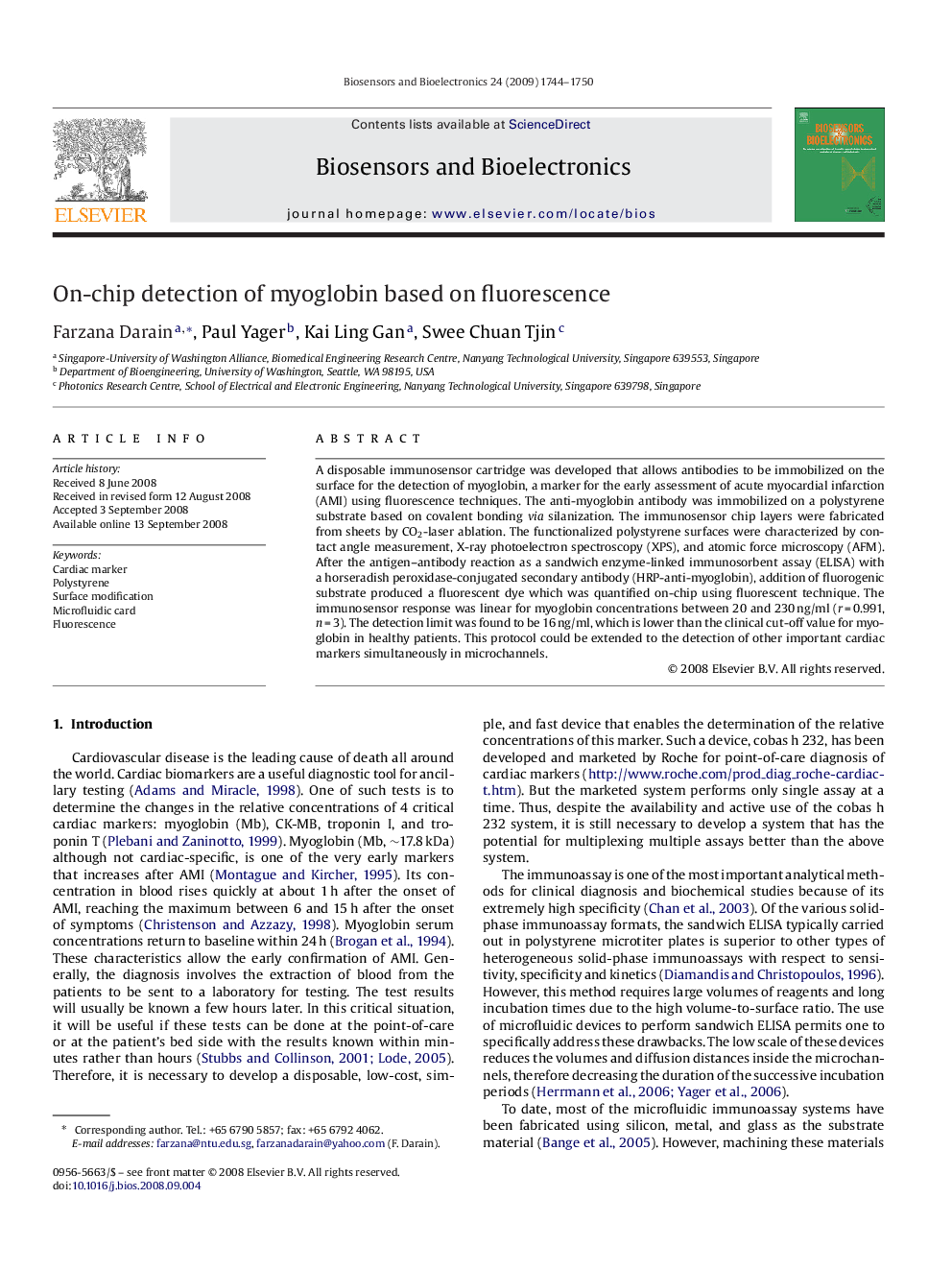| Article ID | Journal | Published Year | Pages | File Type |
|---|---|---|---|---|
| 869144 | Biosensors and Bioelectronics | 2009 | 7 Pages |
A disposable immunosensor cartridge was developed that allows antibodies to be immobilized on the surface for the detection of myoglobin, a marker for the early assessment of acute myocardial infarction (AMI) using fluorescence techniques. The anti-myoglobin antibody was immobilized on a polystyrene substrate based on covalent bonding via silanization. The immunosensor chip layers were fabricated from sheets by CO2-laser ablation. The functionalized polystyrene surfaces were characterized by contact angle measurement, X-ray photoelectron spectroscopy (XPS), and atomic force microscopy (AFM). After the antigen–antibody reaction as a sandwich enzyme-linked immunosorbent assay (ELISA) with a horseradish peroxidase-conjugated secondary antibody (HRP-anti-myoglobin), addition of fluorogenic substrate produced a fluorescent dye which was quantified on-chip using fluorescent technique. The immunosensor response was linear for myoglobin concentrations between 20 and 230 ng/ml (r = 0.991, n = 3). The detection limit was found to be 16 ng/ml, which is lower than the clinical cut-off value for myoglobin in healthy patients. This protocol could be extended to the detection of other important cardiac markers simultaneously in microchannels.
